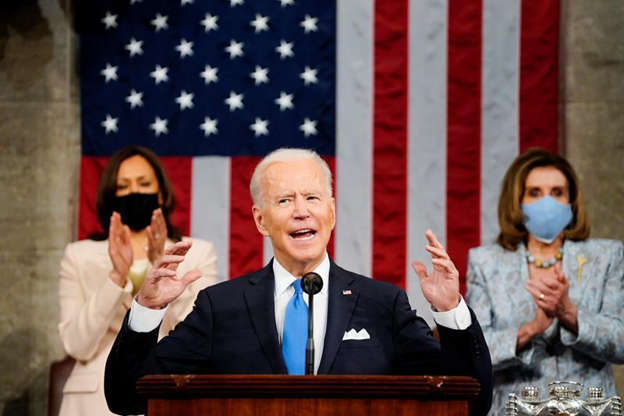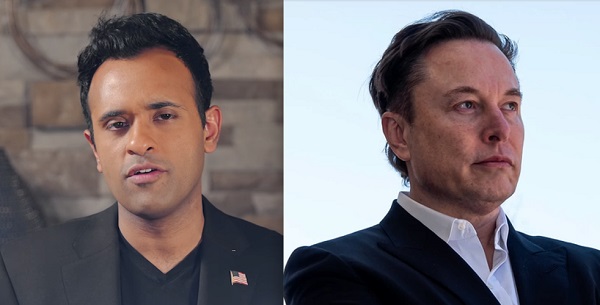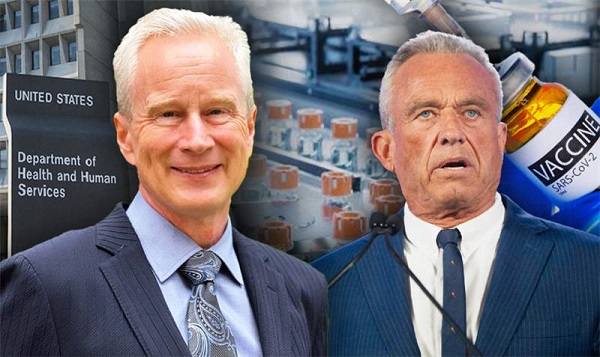International
Supreme Court Agrees to Hear Missouri v. Biden

From the Brownstone Institute
BY
The Supreme Court agreed to hear arguments over the Fifth Circuit’s grant of a preliminary injunction in Missouri v. Biden. As I mentioned in previous posts, the injunction would bar officials from the White House, CDC, FBI, Cybersecurity and Infrastructure Security Agency (CISA), and Surgeon General’s office from coercing or significantly encouraging social media platforms to censor constitutionally protected speech.
My fellow plaintiffs and I welcome this opportunity to defend the First Amendment rights of all Americans in the U.S. Supreme Court. We expect to hear from the Court soon regarding the hearing dates—it could be in February or March.
The Fifth Circuit panel of judges last month upheld the key components of U.S. District Judge Terry Doughty’s July 4 preliminary injunction order, prohibiting named federal officials from coercing or significantly encouraging social media companies to suppress legal speech.
That decision vindicated our claims that we—and countless other Americans—were blacklisted, shadow-banned, deboosted, throttled, and suspended on social media as part of the government’s years-long censorship campaign orchestrated by the federal government.
The Biden Administration’s censorship regime has successfully suppressed perspectives contradicting government-approved views on hotly disputed topics such as whether natural immunity to covid exists, the safety and efficacy of Covid-19 vaccines, the virus’s origins, and mask mandate efficacy.
Beyond covid, the documents we’ve obtained on discovery demonstrate that the government was also censoring critiques of its foreign policy, monetary policy, election infrastructure, and lighting rod social issues from abortion to gender ideology.
The vast, coordinated, and well-documented effort has silenced influential, highly qualified voices including doctors and scientists like my co-plaintiffs Dr. Bhattacharya and Dr. Kulldorff, as well as those like Jill Hines who have tried to raise awareness of issues. Though the US Supreme Court temporarily stayed the Fifth Circuit’s injunction until they make a ruling, I believes the Justices are ultimately unlikely to permit the egregious First Amendment abridgements our case has exposed.
The Fifth Circuit recognized that the Plaintiffs did “not challenge the social-media platforms’ content-moderation policies.” Rather, Plaintiffs challenged the government’s unlawful efforts to influence “enforcement of those policies.” The government gravely harmed the ability of Americans to convey their views to the public, and it deprived Americans of their right to hear opinions that differ from the government’s. Judge Doughty strikingly described the Administration’s conduct as “arguably the most massive attack against free speech in United States history” and “akin to an Orwellian Ministry of Truth.” He was right, and the US Supreme Court must not permit it.
Here are some reactions to the news from our lawyers at NCLA:
“NCLA is thrilled to have the opportunity to vindicate the First Amendment rights of our clients, and all Americans, in the nation’s highest court. We are confident that after a thorough review of the disturbing facts in this important case—which involves unprecedented government-imposed, viewpoint-based censorship—the Court will recognize the grievous, unconstitutional nature of the government’s conduct and enjoin it.”
— Jenin Younes, Litigation Counsel, NCLA“We are disappointed Americans’ First Amendment rights will be vulnerable to government infringement until this case is decided. But we are confident this Court, as strong as it is on First Amendment issues, will rule against the government and uphold our clients’ rights and liberties.”
— John Vecchione, Senior Litigation Counsel, NCLA“If anything, the Fifth Circuit’s decision did not go far enough in enjoining the reprehensible conduct exposed in this case. The facts of this case show government agencies censored speech in a deliberate effort to control the narrative on several controversial topics ahead of the last election. The First Amendment forbids such censorship, and the Supreme Court must never allow such mischief again, if we are to keep our democracy.”
— Mark Chenoweth, President, NCLA
Republished from the author’s Substack
International
Elon Musk, Vivek Ramaswamy Outline Sweeping Plan to Cut Federal Regulations And Staffing

 From the Daily Caller News Foundation
From the Daily Caller News Foundation
Elon Musk and Vivek Ramaswamy published an op-ed Wednesday in the Wall Street Journal that revealed their huge plans for the Department of Government Efficiency (DOGE).
Civil service protections won’t shield federal workers from mass layoffs, according to the op-ed. Musk and Ramaswamy outlined a sweeping plan to cut federal regulations and staffing, marking the most detailed glimpse yet into Trump’s downsizing strategy.
The pair, acting as “outside volunteers,” pledged to collaborate with Trump’s transition team to assemble a “lean team of small-government crusaders.” This team, they said, would work closely with the White House Office of Management and Budget to implement their vision.
The initiative focuses on three core objectives: cutting regulations, reducing administrative overhead, and achieving cost savings. Legal experts and advanced technology will help identify regulations that overstep congressional authority. These rules would be presented to Trump, who could halt enforcement and begin the repeal process through executive action.
BREAKING: Donald Trump has officially announced Elon Musk & Vivek Ramaswamy will lead Department of Government Efficiency (DOGE) pic.twitter.com/9WNn5FojN1
— Daily Caller (@DailyCaller) November 13, 2024
“A drastic reduction in federal regulations provides sound industrial logic for mass head-count reductions across the federal bureaucracy. DOGE intends to work with embedded appointees in agencies to identify the minimum number of employees required at an agency for it to perform its constitutionally permissible and statutorily mandated functions,” the op-ed revealed.
Musk and Ramaswamy acknowledged the impact of their plan and said displaced workers should be treated with dignity, proposing incentives like early retirement packages and severance pay to ease their transition into private-sector roles. Despite common assumptions, civil service protections won’t prevent these layoffs, they contended, as long as the terminations are framed as reductions in force rather than targeting specific employees.
Musk and Ramaswamy also advocated for relocating federal agencies out of Washington, D.C., and encouraging voluntary resignations from remote workers unwilling to return to the office full-time. “If federal employees don’t want to show up, American taxpayers shouldn’t pay them for the Covid-era privilege of staying home,” they said.
Ramaswamy said Tuesday that federal employees must return to the office full-time. He noted on X, previously known as Twitter, that unions are hastily revising agreements to prevent job losses, claiming the prospect of a five-day office schedule has left some “in tears.”
Trump announced that Musk and Ramaswamy will co-lead a newly created DOGE during his second term. The duo will work with the White House Office of Management and Budget to streamline federal agencies, reduce wasteful spending, and eliminate excessive regulations.
Energy
What does a Trump presidency means for Canadian energy?

From Resource Works
Heather-Exner Pirot of the Business Council of Canada and the Macdonald-Laurier Institute spoke with Resource Works about the transition to Donald Trump’s energy policy, hopes for Keystone XL’s revival, EVs, and more.
Do you think it is accurate to say that Trump’s energy policy will be the complete opposite of Joe Biden’s? Or will it be more nuanced than that?
It’s more nuanced than that. US oil and gas production did grow under Biden, as it did under Obama. It’s actually at record levels right now. The US is producing the most oil and gas per day that any nation has ever produced in the history of the world.
That said, the federal government in the US has imposed relatively little control over production. In the absence of restrictive emissions and climate policies that we have in Canada, most of the oil production decisions have been made based on market forces. With prices where they’re at currently, there’s not a lot of shareholder appetite to grow that significantly.
The few areas you can expect change: leasing more federal lands and off shore areas for oil and gas development; rescinding the pause in LNG export permits; eliminating the new methane fee; and removing Biden’s ambitious vehicle fuel efficiency standards, which would subsequently maintain gas demand.
I would say on nuclear energy, there won’t be a reversal, as that file has earned bipartisan support. If anything, a Trump Admin would push regulators to approve SMRs models and projects faster. They want more of all kinds of energy.
Is Keystone XL a dead letter, or is there enough planning and infrastructure still in-place to restart that project?
I haven’t heard any appetite in the private sector to restart that in the short term. I know Alberta is pushing it. I do think it makes sense for North American energy security – energy dominance, as the Trump Admin calls – and I believe there is a market for more Canadian oil in the USA; it makes economic sense. But it’s still looked at as too politically risky for investors.
To have it move forward I think you would need some government support to derisk it. A TMX model, even. And clear evidence of social license and bipartisan support so it can survive the next election on both sides of the border.
Frankly, Northern Gateway is the better project for Canada to restart, under a Conservative government.
Keystone XL was cancelled by Biden prior to the invasion of Ukraine in 2022. Do you think that the reshoring/friendshoring of the energy supply is a far bigger priority now?
It absolutely is a bigger priority. But it’s also a smaller threat. You need to appreciate that North America has become much more energy independent and secure than it has ever been. Both US and Canada are producing at record levels. Combined, we now produce more than the Middle East (41 million boe/d vs 38 million boe/d). And Canada has taken a growing share of US imports (now 60%) even as their import levels have declined.
But there are two risks on the horizon: the first is that oil is a non renewable resource and the US is expected to reach a peak in shale oil production in the next few years. No one wants to go back to the days when OPEC + had dominant market power. I think there will be a lot of demand for Canadian oil to fill the gap left by any decline in US oil production. And Norway’s production is expected to peak imminently as well.
The second is the need from our allies for LNG. Europe is still dependent on Russia for natural gas, energy demand is growing in Asia, and high industrial energy costs are weighing on both. More and cheaper LNG from North America is highly important for the energy security of our allies, and thus the western alliance as it faces a challenge from Russia, China and Iran.
Canada has little choice but to follow the US lead on many issues such as EVs and tariffs on China. Regarding energy policy, does Canada’s relative strength in the oil and gas sector give it a stronger hand when it comes to having an independent energy policy?
I don’t think we want an independent energy policy. I would argue we both benefit from alignment and interdependence. And we’ve built up that interdependence on the infrastructure side over decades: pipelines, refineries, transmission, everything.
That interdependence gives us a stronger hand in other areas of the economy. Any tariffs on Canadian energy would absolutely not be in American’s interests in terms of their energy dominance agenda. Trump wants to drop energy costs, not hike them.
I think we can leverage tariff exemptions in energy to other sectors, such as manufacturing, which is more vulnerable. But you have to make the case for why that makes sense for US, not just Canada. And that’s because we need as much industrial capacity in the west as we can muster to counter China and Russia. America First is fine, but this is not the time for America Alone.
Do you see provinces like Alberta and Saskatchewan being more on-side with the US than the federal government when it comes to energy?
Of course. The North American capital that is threatening their economic interests is not Washington DC; it’s Ottawa.
I think you are seeing some recognition – much belated and fast on the heels of an emissions cap that could shut in over 2 million boe of production! – that what makes Canada important to the United States and in the world is our oil and gas and uranium and critical minerals and agricultural products.
We’ve spent almost a decade constraining those sectors. There is no doubt a Trump Admin will be complicated, but at the very least it’s clarified how important those sectors are to our soft and hard power.
It’s not too late for Canada to flex its muscles on the world stage and use its resources to advance our national interests, and our allies’ interests. In fact, it’s absolutely critical that we do so.
-

 Brownstone Institute1 day ago
Brownstone Institute1 day agoThe Most Devastating Report So Far
-

 Business1 day ago
Business1 day agoCarbon tax bureaucracy costs taxpayers $800 million
-

 ESG1 day ago
ESG1 day agoCan’t afford Rent? Groceries for your kids? Trudeau says suck it up and pay the tax!
-

 John Stossel1 day ago
John Stossel1 day agoGreen Energy Needs Minerals, Yet America Blocks New Mines
-

 COVID-192 days ago
COVID-192 days agoDr. McCullough praises RFK Jr., urges him to pull COVID shots from the market
-

 Daily Caller1 day ago
Daily Caller1 day agoLos Angeles Passes ‘Sanctuary City’ Ordinance In Wake Of Trump’s Deportation Plan
-

 Alberta1 day ago
Alberta1 day agoProvince considering new Red Deer River reservoir east of Red Deer
-

 MAiD2 days ago
MAiD2 days agoOver 40% of people euthanized in Ontario lived in poorest parts of the province: government data








